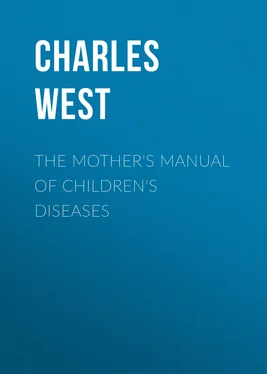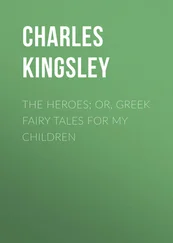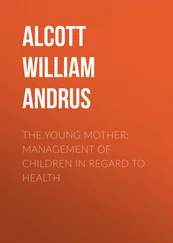Charles West - The Mother's Manual of Children's Diseases
Здесь есть возможность читать онлайн «Charles West - The Mother's Manual of Children's Diseases» — ознакомительный отрывок электронной книги совершенно бесплатно, а после прочтения отрывка купить полную версию. В некоторых случаях можно слушать аудио, скачать через торрент в формате fb2 и присутствует краткое содержание. Издательство: Иностранный паблик, Жанр: Руководства, Медицина, foreign_desc, на английском языке. Описание произведения, (предисловие) а так же отзывы посетителей доступны на портале библиотеки ЛибКат.
- Название:The Mother's Manual of Children's Diseases
- Автор:
- Издательство:Иностранный паблик
- Жанр:
- Год:неизвестен
- ISBN:нет данных
- Рейтинг книги:5 / 5. Голосов: 1
-
Избранное:Добавить в избранное
- Отзывы:
-
Ваша оценка:
- 100
- 1
- 2
- 3
- 4
- 5
The Mother's Manual of Children's Diseases: краткое содержание, описание и аннотация
Предлагаем к чтению аннотацию, описание, краткое содержание или предисловие (зависит от того, что написал сам автор книги «The Mother's Manual of Children's Diseases»). Если вы не нашли необходимую информацию о книге — напишите в комментариях, мы постараемся отыскать её.
The Mother's Manual of Children's Diseases — читать онлайн ознакомительный отрывок
Ниже представлен текст книги, разбитый по страницам. Система сохранения места последней прочитанной страницы, позволяет с удобством читать онлайн бесплатно книгу «The Mother's Manual of Children's Diseases», без необходимости каждый раз заново искать на чём Вы остановились. Поставьте закладку, и сможете в любой момент перейти на страницу, на которой закончили чтение.
Интервал:
Закладка:
It would answer no good purpose to give a description of the information to be obtained by listening to the chest. To learn from this, needs the well-trained ear; and harm, not good, comes from the half-knowledge which serves but to lead astray.
A child may be very suffering, seem very ill, and its suffering and illness may depend on pain in the stomach owing to indigestion, constipation, or even to an accidental chill. After early infancy it is not difficult to make out the seat of the child's suffering: the warm hand placed gently on its stomach will soon ascertain whether it is tense or tender, whether the tenderness is confined to one particular spot, or whether it is more acute at one spot than at another; and, lastly, whether, as is the case when pain is produced by wind in the intestines, the pain and tenderness are both relieved by gentle rubbing.
In the young infant the character of the cry will, as I have already said, give some clue to the seat of its pain, while, if you lay it down in its cot or in its nurse's arms in order to examine its stomach, it will often resist and begin to cry. Its stomach then becomes perfectly tense, and you cannot tell whether pressure on it causes pain or whether the cries are not altogether the consequence of fretfulness and fear. It is therefore the best plan to pass your hand beneath the child's clothes and to examine its stomach without altering its posture, while at the same time the nurse in whose arms it is talks to it to distract its attention, or holds it opposite the window, or opposite a bright light, which seldom fails to amuse an infant. If there is no tenderness of the stomach the child will not cry on pressure; or if during your examination the presence of wind in the intestines should occasion pain, gentle friction, instead of increasing suffering, will give relief.
The one thing which still remains to do, especially in the case of children in whom teething is not over, is to examine the mouth and ascertain the state of the gums, since some ailments are caused and others are aggravated by teething. A wise mother or an intelligent nurse will teach the child when well the little trick of putting out its tongue and opening its mouth to show its teeth when told to do so; and though it may sometimes indulge rather out of place in these performances when wished to behave especially prettily before strangers, yet when older it will quickly learn the proprieties of behaviour, and in the meanwhile you profit much by the lesson when illness really comes.
Sometimes, however, infants who when well will open their mouth and allow their gums to be felt without difficulty, refuse to do so when ill; and it is always desirable that the mother or nurse whose duty it is to tend the sick child constantly, should not frighten it, or lose its confidence, by doing forcibly that which the doctor who comes occasionally may yet be quite right in doing. You will, however, generally get a good view of the mouth and throat in young infants by gently touching the lips with your finger: the child opens its mouth instinctively, and then you can run your finger quickly over its tongue, and drawing it slightly forward perfectly see the condition of the throat, feel the gums as you withdraw your finger, and notice the appearance of the tongue. Sometimes it is important to ascertain whether a tooth which was near coming through has actually pierced the gum, and yet the child's fretfulness renders it almost impossible to induce it to open its mouth. If now, while the nurse holds the child in her arms, you go behind her, you can, unseen and unawares, introduce your finger into its mouth and ascertain all you wish to know before the little one has recovered from its surprise.
I have but little to say here about the general signs of brain disease in infancy and childhood, because they will need minute notice afterwards. All that I would at present observe is, that you must not at once conclude that a child's head is seriously affected, because it is heavy and fretful and passionate, and refuses to be amused. The head, as we know by our own experience, suffers by sympathy in the course of almost every ailment, certainly of every acute ailment, at all ages. If the babe is not sick; if its bowels can be acted on by ordinary means; if, though drowsy, it can be roused without difficulty; if, though it may prefer a darkened room, it does not shrink from the light when admitted gradually; if it has no slight twitchings of its fingers or of its wrists; if the head, though hot, is not hotter than the rest of the body; if the large vessels of the neck, or the open part of the head, or fontanelle as it is termed, in an infant in whom the head is not yet closed, are not beating violently; and, above all, if when it cries it sheds tears , you may quiet your mind on the score of the child's brain, at any rate until the doctor's visit, and may turn a deaf ear to the nurse or the friend who assures you that the child is about to have convulsions or to be attacked by inflammation of the brain.
CHAPTER III.
THE GENERAL MANAGEMENT OF DISEASE IN INFANCY AND CHILDHOOD
The management of the child when ill is difficult or easy in exact proportion to whether it has been ill or well managed when in health. The mother who lives but little with her children, who contents herself with a daily visit to the nursery, and who then scarcely sees her little ones until they are brought into the drawing-room in the evening in full dress, to be petted and admired and fondled by the visitors, cannot expect to take her place by the child's bed in its sickness, to soothe its pain, and to expend upon it all the pent-up tenderness which, in spite of the calls of business or of pleasure, still dwells within her heart. She must be content to see the infant turn from her to the nurse with whose face it has all its life been familiar; or to hear the little one tell her to go away, for her presence is associated with none of those 'familiar acts, made beautiful by love,' which win the young heart: the mother is but a stranger who brings no help, who relieves no distress. Happy such a mother if she has found a conscientious and intelligent nurse to whom she can delegate her office; but she must remember that with the child, love follows in the steps of daily, hourly kindnesses, that a mother's part must be played in health if it is to be undertaken in sickness, that it cannot be laid down and taken up again at pleasure.
There is another mother who cannot nurse her child to any good purpose, she who when it was well spoilt it from excess of love, who has yielded to each wayward wish, and has allowed it to become the petty tyrant of the household. The child is ill, it is languid, feverish, and in pain; no position is quite easy to it, no food pleasant to it, bed is irksome, medicine is nasty. It knows only that it suffers, it has been accustomed to have its will obeyed in everything, and cannot understand that its suffering is not at once taken away. It insists on getting up and on being dressed, or on lying in its mother's or nurse's lap, where the warmth of another person's body does but aggravate its fever; it screams with passion at the approach of the doctor, it will not allow itself to be examined, it will take no medicine; the doctor is powerless, the mother heart-broken. Sickness is not the time to exercise authority which has not been put in force before; and, not once but many times, I have watched, a sad spectator, the death of children from an illness not necessarily fatal, but rendered so because it was impossible to learn the progress of disease, impossible to administer the necessary remedies.
One more point I must insist on before going into details, and that is as to the necessity of perfect truthfulness in dealing with sick children. The foolish device of telling a child when ill, that the doctor who has been sent for is its uncle or its cousin, is the outcome of the still more foolish falsehood of threatening the child with the doctor's visit if it does not do this or that. No endeavour should be spared by nurse or parent, or by the doctor himself, to render his visit popular in the nursery. Three-fourths of the difficulties which attend the administration of medicine are commonly the result of previous bad management of the child, of foolish over-indulgence, or of still more foolish want of truthfulness. It may answer once to tell a child that medicine is nice when really it is nasty, but the trick will scarcely succeed a second time, and the one success will increase your difficulties ever after. If medicine is absolutely necessary, and the child is too young to understand reason, it must be given by force, very firmly but very kindly, and the grief it occasions will be forgotten in an hour or two. If he is old enough, tell him that the medicine is ordered to do him good, and firmness combined with gentleness will usually succeed in inducing him to take it. The advantage of perfect truthfulness extends to every incident in the illness of children, even to the not saying, 'Oh, you will soon be well,' if it is not likely so to be. If children find you never deceive them, how implicitly they will trust you, what an infinity of trouble is saved, and how much rest of mind is secured to the poor little sufferer!
Читать дальшеИнтервал:
Закладка:
Похожие книги на «The Mother's Manual of Children's Diseases»
Представляем Вашему вниманию похожие книги на «The Mother's Manual of Children's Diseases» списком для выбора. Мы отобрали схожую по названию и смыслу литературу в надежде предоставить читателям больше вариантов отыскать новые, интересные, ещё непрочитанные произведения.
Обсуждение, отзывы о книге «The Mother's Manual of Children's Diseases» и просто собственные мнения читателей. Оставьте ваши комментарии, напишите, что Вы думаете о произведении, его смысле или главных героях. Укажите что конкретно понравилось, а что нет, и почему Вы так считаете.











